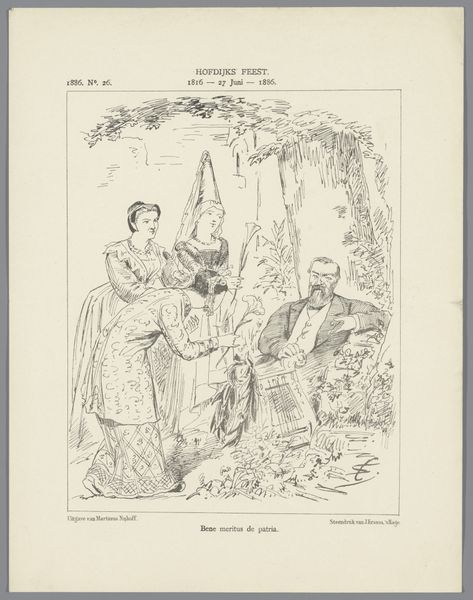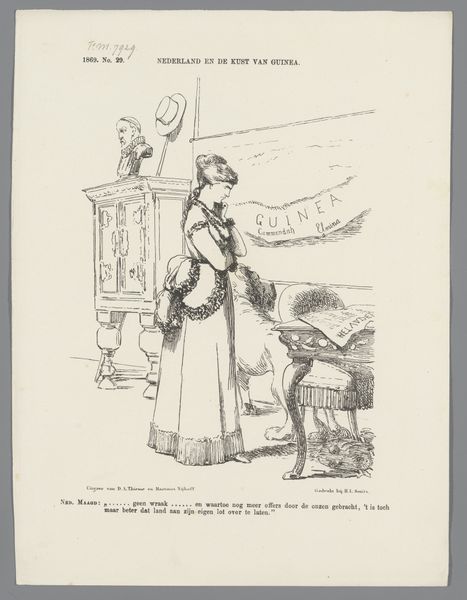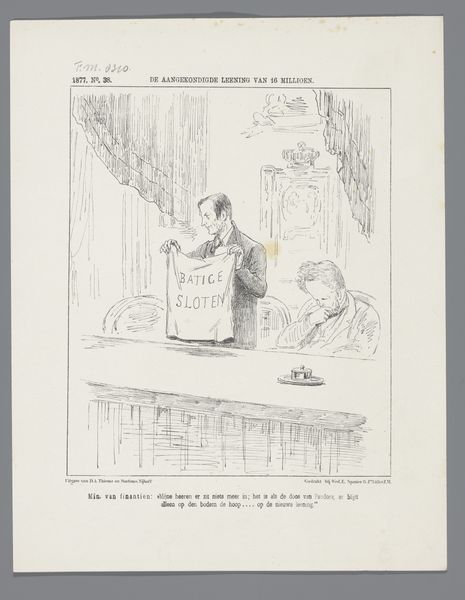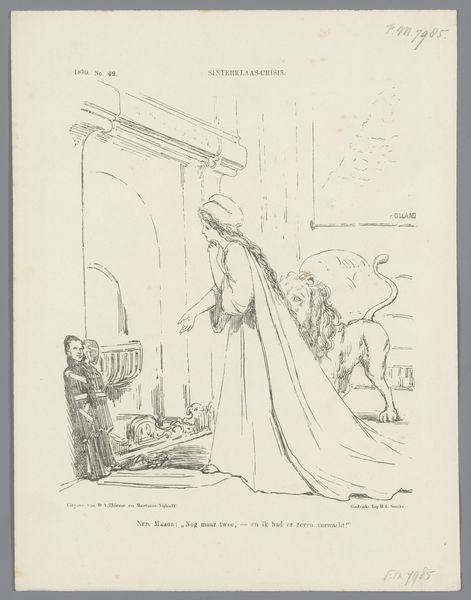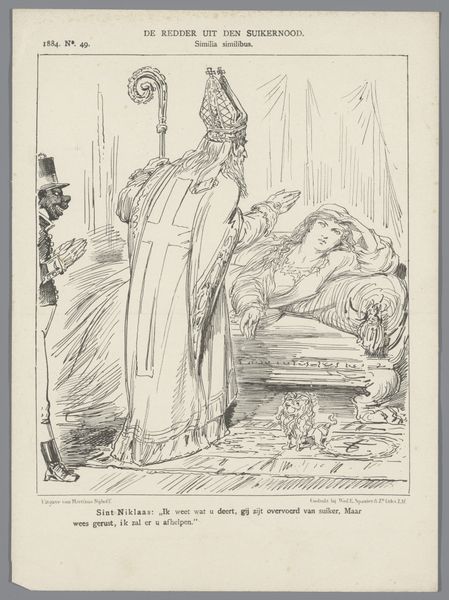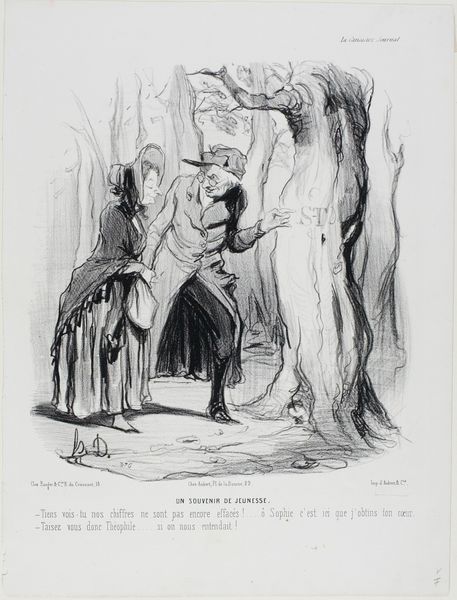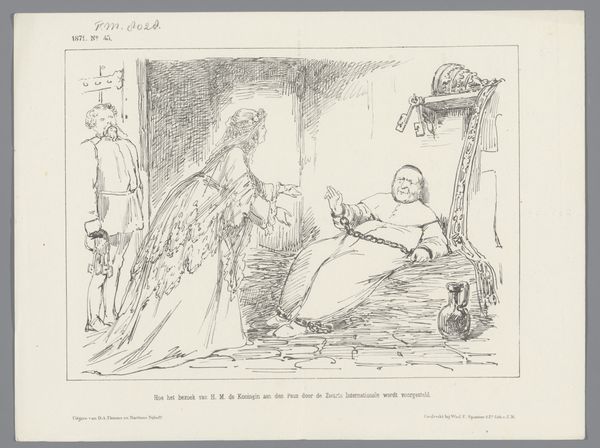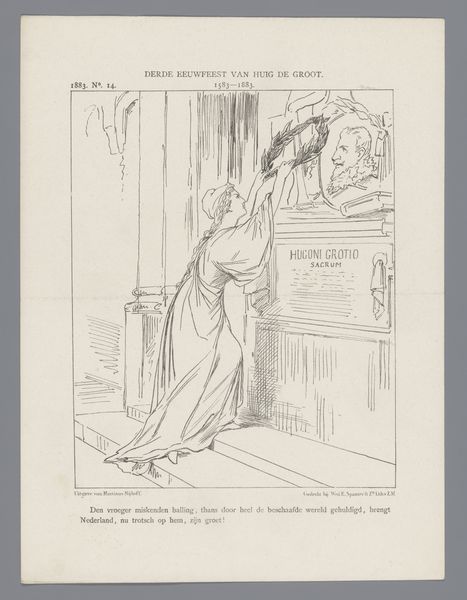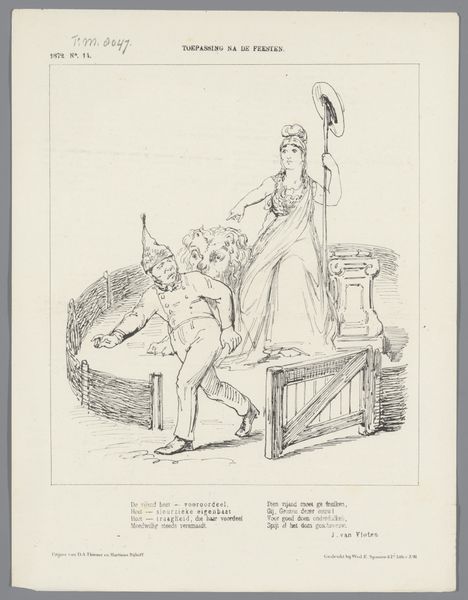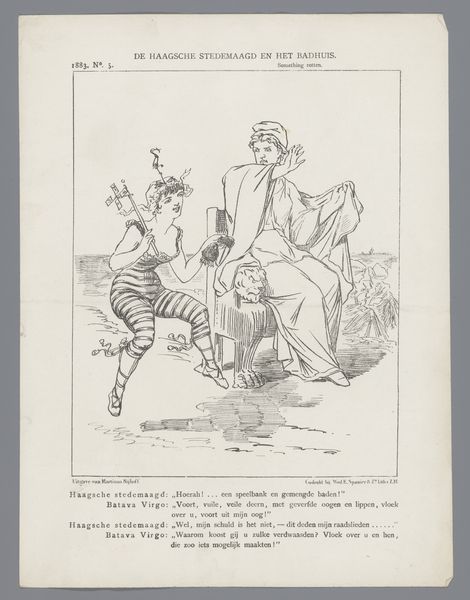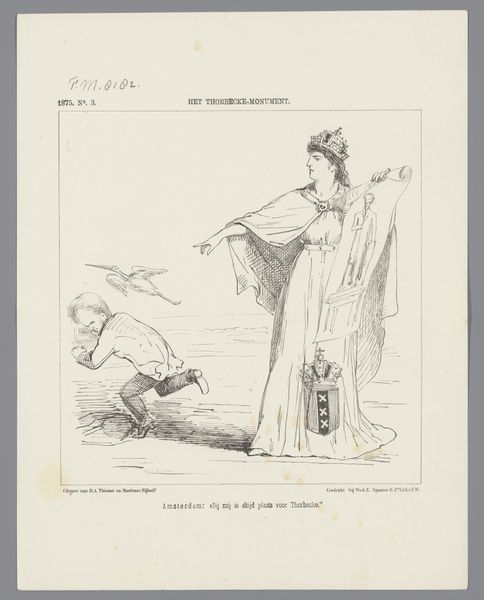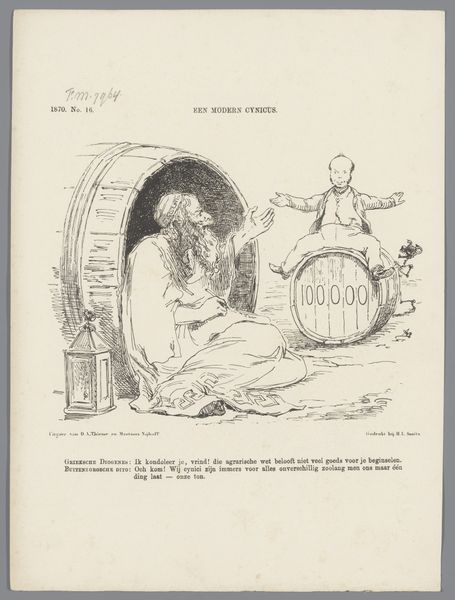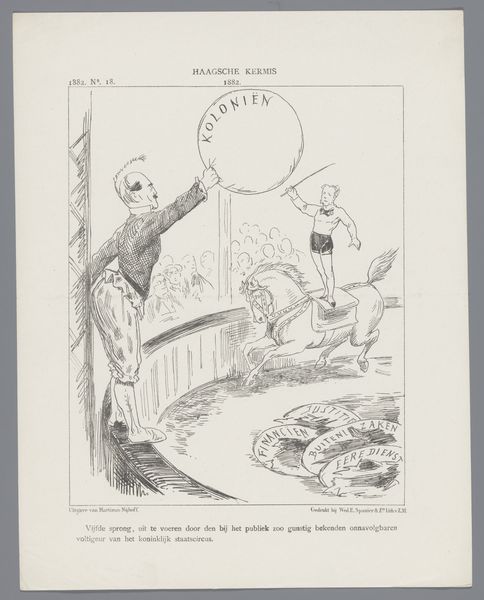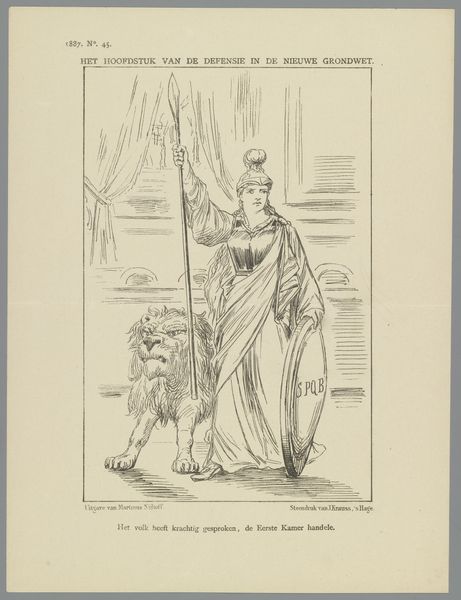
Spotprent over de Tiende Nederlandsch Taal- en Letterkundig Congres te Den Haag, 1868 1867
0:00
0:00
drawing, paper, ink
#
drawing
#
caricature
#
paper
#
ink
#
genre-painting
Dimensions: height 275 mm, width 215 mm
Copyright: Rijks Museum: Open Domain
Editor: Here we have "Spotprent over de Tiende Nederlandsch Taal- en Letterkundig Congres te Den Haag, 1868," a drawing in ink on paper by Johan Michaël Schmidt Crans from 1867. It strikes me as quite satirical. What's your take? Curator: This caricature presents us with a complex intersection of cultural and political commentary. Considering the historical context, the drawing emerges from a period of intense national identity formation in the Netherlands. What does the imagery—the "Hague City Maid," the books—suggest about the relationship between language, identity, and power at that time? Editor: Well, the figure of the "Hague City Maid" seems to represent the city itself, perhaps welcoming the Congress. The books...maybe they're symbolic of literature and language? Curator: Exactly. But consider, too, who has the power to define "correct" language or "valuable" literature. Who is included, and who is excluded from that definition? The caricature highlights the elitism sometimes associated with such congresses, hinting at a power dynamic where certain dialects or literary styles might be privileged over others. Editor: So, it’s not just a neutral celebration of language, but a critique of the power structures within that celebration? Curator: Precisely. Think about how these seemingly benign cultural events can perpetuate or challenge existing social hierarchies. It encourages us to critically examine the politics inherent in defining and promoting national language and culture. Editor: I hadn't considered it that way. Seeing it as a commentary on power dynamics definitely changes how I read the image. Curator: Art, especially satirical art like this, serves as a powerful tool for questioning established norms and revealing the underlying social and political currents of its time. It encourages us to think critically about the narratives we inherit.
Comments
No comments
Be the first to comment and join the conversation on the ultimate creative platform.
